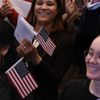Attorney general orders Craigslist to remove posts of fake cures
On Friday, New York’s attorney general, Letitia James, sent a letter to counsel for Craigslist.com, calling on the company to immediately remove posts that attempt to “unlawfully and fraudulently” profit off consumers’ fears around the coronavirus disease 2019.
Multiple posts in recent days have attempted to sell fake items that purportedly claim to provide “immunity” to the coronavirus or allow individuals to test for the disease, while others have sought to exorbitantly charge consumers for items like hand sanitizer.
“My office will not hesitate to take action against all those who use the coronavirus as a get-rich-quick scheme at a consumer’s expense,” said James in a release from her office.
There is currently no Food and Drug Administration-approved vaccine to prevent the disease or treatment to cure it, and the World Health Organization has also said that there is no specific medicine to prevent or treat the coronavirus.
Additionally, a number of ads claim to sell products — including coronavirus “testing kits,” “protect[ive]” kits, and “N94” masks — which fraudulently claim to test for the disease and offer protection against it. The images of these fake test kits have been stolen from different government and private websites, and there has been no evidence of an N94 mask ever existing.
The letter also ordered Craigslist to remove posts that are in clear violation of New York’s price-gouging law by attempting to sell, for example, a 1,200-milliliter bottle of Purell for $222.
Finally, the letter demanded that Craigslist provide the Office of the Attorney General with information on all proactive efforts the company is taking or planning to take to detect and remove similarly fraudulent, deceptive, or misleading postings on its platform related to the coronavirus.
Deceptive advertisements violate numerous New York laws, and the attorney general’s office is also authorized to bring suit to enjoin any illegal acts and practices, including violations of the state’s price-gouging law, which provides for a civil penalty not to exceed $25,000 and, where appropriate, restitution for aggrieved consumers.
Separately, James has already sent multiple cease-and-desist letters to individuals and companies selling and marketing certain products as treatments or cures for the coronavirus, including Alex Jones, The Silver Edge company, Dr. Sherrill Sellman, televangelist Jim Bakker, and others.
Additionally, James has issued cease and desist notifications to multiple businesses in New York for charging excessive prices for hand sanitizers, disinfectant sprays, and rubbing alcohol — a violation of New York’s price-gouging statute. That statute prohibits the sale of goods and services necessary for the health, safety, and welfare of consumers at unconscionably excessive prices during any abnormal disruption of the market.
Finally, also on Friday, James sent letters to a number of domain name registrars — including GoDaddy.com, Dynadot.com, Name.com, Namecheap.com, and Registrar.com, as well as the Endurance International Group, which owns Bluehost.com, Domain.com, and HostGator.com — in an effort to stop the registration and use of internet domain names by individuals trying to unlawfully and fraudulently profit off consumers’ fears around COVID-19.
Over the last two months, the Office of the Attorney General has seen a spike in coronavirus-related domains being registered for the purposes of deceptive advertising, phishing schemes, and malware dissemination, the release said.
“These scam sites are not only stoking fear in the hearts and minds of Americans, but are profiting off their appalling deception,” said James in the release. “We need all consumers to remain vigilant, as my office continues to work diligently to take down these websites and ensure scammers, cons, and cheats are held responsible for their unlawful actions. I encourage any individual with information related to these scam sites to report them to my office immediately.”
One independent study found that 3 percent of domains registered since January mentioning coronavirus have been found to be actively malicious, with an additional 5 percent categorized as suspicious. These sites have not only marketed fake “treatments” and “vaccines,” but have also potentially created fake “charities” and even coronavirus-related investment opportunities for individuals to invest their money in.
If consumers believe they have been victims of a scam or have witnessed potential price-gouging, they can report these incidents to the OAG.



